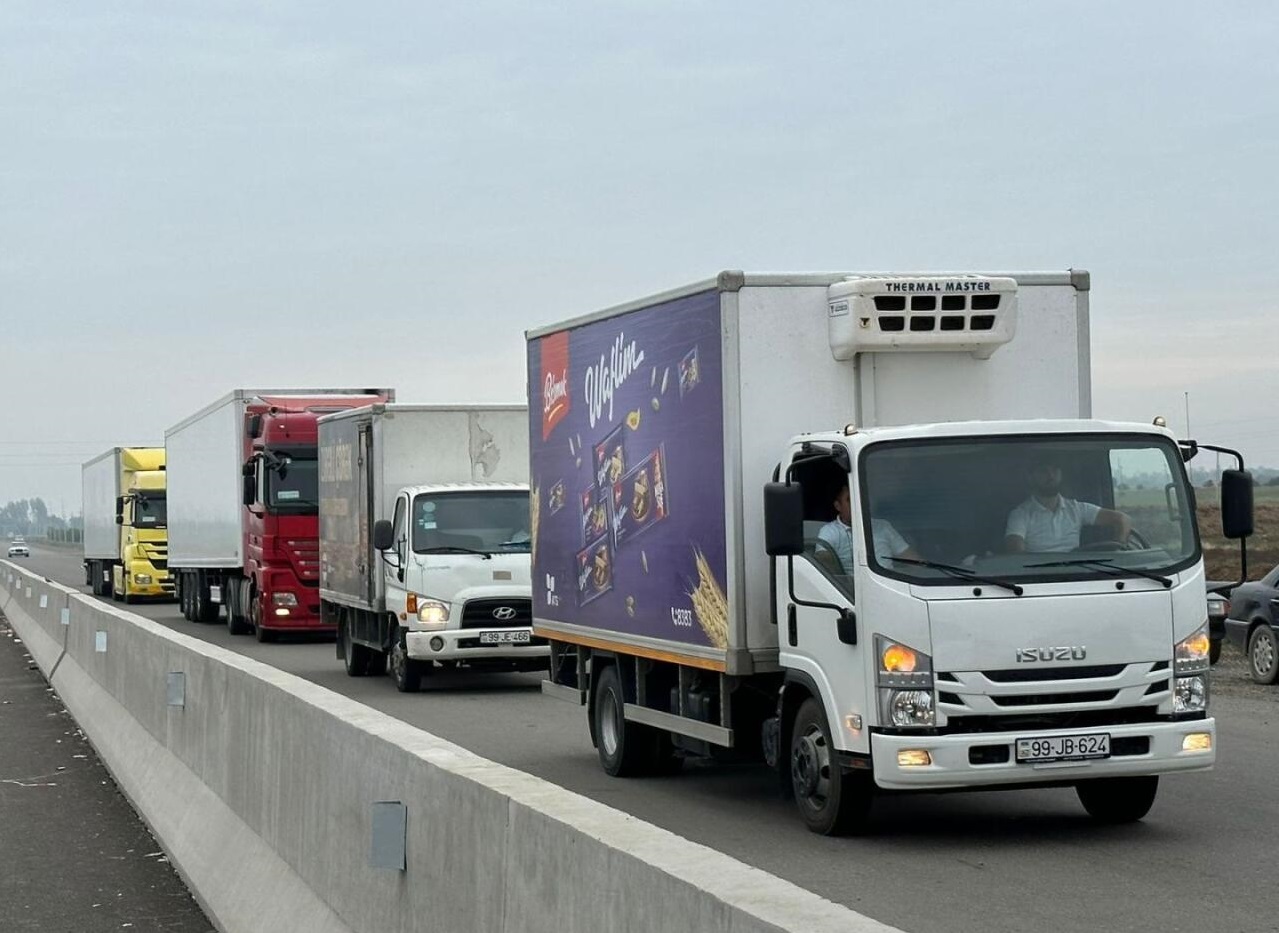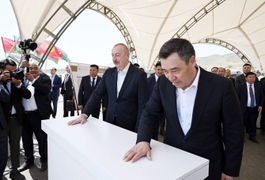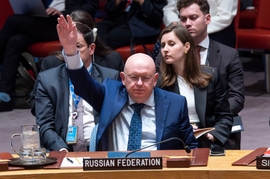Azerbaijani authorities dispatched food and hygiene products and fuel to the Armenian residents living in the Karabakh (Garabagh) region of Azerbaijan.
On Friday, the Azerbaijani Emergencies Ministry sent a total of 40 tons of cargo in two lorries, along with bread in two trucks, to be distributed among the Armenian residents of the Karabakh region on the same day. The cargo included flour, sugar, butter, tea, rice, pasta, candies, as well as diapers, toothpaste, soap, and other essential hygiene items.
Azerbaijani authorities also delivered 24 tons of gasoline and 40 tons of diesel fuel for kindergartens, emergency medical and firefighting service units in the region via the Barda-Aghdam-Asgaran-Khankendi road on September 23.
This vital aid was provided in response to a request from representatives of the Armenian residents in the Karabakh region during a meeting with Azerbaijani government officials on Thursday.
Baku's assistance is part of the process of reintegrating Armenians of the Karabakh region into Azerbaijani society.
“We have a political vision for making progress towards reintegration. When we talk about reintegration, we mean a model of peaceful reintegration of Armenians in Karabakh into the economic, political and social life of Azerbaijan. At the same time, we must be realistic that there will be people who don't like it and don't accept it,” said Hikmet Hajiyev, an Assistant to the President of Azerbaijan, Head of Foreign Policy Affairs Department of the Presidential Administration.
Approximately 25,000 Armenians reside in certain parts of the Karabakh region monitored by a temporary Russian peacekeeping mission. After the 2020 war, the Azerbaijani government expressed its willingness to reintegrate these individuals into Azerbaijani society in accordance with the Constitution and laws of Azerbaijan.
Initially, on March 1, Azerbaijani officials met with representatives of Armenians residing in the Karabakh region to initiate discussions about their reintegration into Azerbaijani society. In late March, Azerbaijani authorities extended an invitation to the representatives of Armenian residents to visit Baku for a second meeting.
However, a group of separatists and their armed factions in the Karabakh region, as well as certain political groups in Armenia, attempted to disrupt the process. They have advocated for "status" for the region's Armenian residents and demanded "independence" from Azerbaijan.
These provocations against Azerbaijan, including frequent shelling and acts of terrorism involving landmines, prompted anti-terrorism measures by the Azerbaijani Armed Forces on September 19 to neutralize illegal Armenian armed groups and their military infrastructure in the Karabakh region.
By the time hostilities ceased on September 20, the Azerbaijani military had disabled artillery systems, electronic warfare equipment, military hardware, ammunition depots, military fortifications, and shelters of Armenian army formations stationed in the Karabakh region. Additionally, more than 90 combat posts and strategically important positions of the Armenian military in the Karabakh region were brought under Azerbaijani control during the one-day operation. Seven military vehicles, four mortars, one tank, two infantry fighting vehicles, as well as a significant quantity of weapons and ammunition, were captured as spoils of war.
The Azerbaijani Defense Ministry announced on Wednesday the conclusion of local counter-terrorism measures. According to the ministry, an agreement was reached after Armenian army units agreed to full disarmament by withdrawing, surrendering their arms, and handing over heavy military equipment.







 President Ilham Aliyev shed light on the evolving contours of the peace process with Armenia during an international conference in Baku this week. ...
President Ilham Aliyev shed light on the evolving contours of the peace process with Armenia during an international conference in Baku this week. ...
 Azerbaijan and Armenia started the process of demarcation of their border on Tuesday, with the installation of the first border markers based on ge...
Azerbaijan and Armenia started the process of demarcation of their border on Tuesday, with the installation of the first border markers based on ge...
 Iranian President Ebrahim Raisi expressed Tehran’s readiness to participate in significant development projects in Sri Lanka during the inauguratio...
Iranian President Ebrahim Raisi expressed Tehran’s readiness to participate in significant development projects in Sri Lanka during the inauguratio...
 Iran and Pakistan have signed eight cooperation documents in various fields, and agreed to strengthen ties to fight terrorism in the region.
Iran and Pakistan have signed eight cooperation documents in various fields, and agreed to strengthen ties to fight terrorism in the region.
 As the conflict between Ukraine and Russia escalates, the strategic importance of Kharkiv, Ukraine's second-largest city, has come sharply into focus.
As the conflict between Ukraine and Russia escalates, the strategic importance of Kharkiv, Ukraine's second-largest city, has come sharply into focus.



